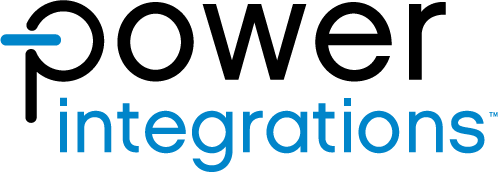Sustainability and Citizenship


Message from CEO Balu Balakrishnan
1997年我读了一篇论文Lawrence Berkeley National Laboratoryexplaining that billions of dollars are wasted each year by computers, TVs and other electronic devices that are plugged in but not in use. One of the culprits behind this "standby" waste was the power supplies that convert the high voltage from a wall outlet into the lower voltage needed by most electronics. These power supplies tended to be highly inefficient when it came to supplying just enough watts to power a remote-control sensor, LED display, or some other standby function. At that time, Power Integrations was developing a new power-supply chip called TinySwitch, featuring an innovative switching technique that enabled high efficiency at reduced levels of output. It was a "light bulb" moment for us; what we had thought would be a side benefit of our new product was not only a solution to a major economic and environmental problem but also a great business opportunity for Power Integrations.
Since then, all of ourAC-DC power-conversion chipshave included this technology, known as EcoSmart. By the beginning of 2022 we had shipped more than 18 billion chips with EcoSmart technology, generating estimated savings of more than 150 terawatt-hours of electricity and tens of millions of tons of CO2emissions. In 2021 alone, we estimate that EcoSmart technology saved enough energy to power about 1.9 million U.S. homes for the entire year, without adding cost, and without any change in behavior on the part of end users. I believe that the impact of EcoSmart technology will expand in the years ahead as billions of new electronic devices are connected to the grid, such as USB charging ports, smart utility meters, networked thermostats and myriad other “IoT” and smart-home devices.
In addition to EcoSmart technology, our commitment to clean technologies includes investments inLED lighting, efficientmotor-driverproducts and大功率门博士ivers. Our LED-driver products deliver the reliability and efficiency needed to help LED technology fulfill its promise to transform the lighting industry. Our motor-driver products complement the efficiency of brushless DC motors used in many consumer appliances, while our gate drivers are vital components in clean technologies such as solar- and wind-energy, electric vehicles and efficient long-haul DC transmission. And our recent introduction of highly efficientgallium-nitride, or GaN, transistors—after nearly a decade of work and millions of dollars of R&D investment—is yet another major breakthrough in energy-saving semiconductor technologies.
更广泛地说,我们认为有经济opportunity in operating with the benefit of society and the environment in mind. We take the long view in our planning and decision making, and invest for sustainable growth and profitability. We use solar energy to help power our facilities; in 2021 we added solar arrays at our new facilities in Switzerland and Germany, and in 2022 we plan to add a megawatt of generation capacity to our existing solar array in San José. We incorporate green, conflict-free materials in our products, and foster stable, long-term relationships with manufacturing partners holding ISO quality and environmental certifications. We value our employees, giving them the tools and training to grow as individuals, and the freedom to take risks in the service of innovation. During the early stages of the COVID-19 pandemic when many companies reduced headcount or froze salaries, we continued hiring and gave normal annual salary increases to our employees. As a result of our long-term, sustainable approach, we have a track record of positive earnings, high levels of customer satisfaction, and below-average employee turnover relative to our industry.
I'm proud not only of what our technology has done to benefit the world, but also the responsible way in which we conduct our business. I invite you to read more about it here on our website.
Balu Balakrishnan
President and Chief Executive Officer
Power Integrations, Inc.


